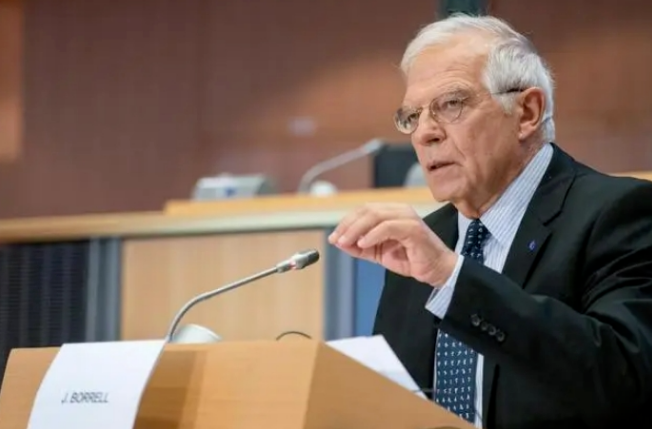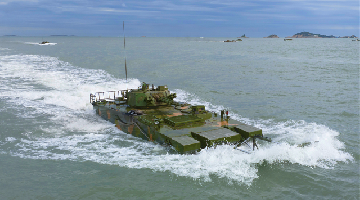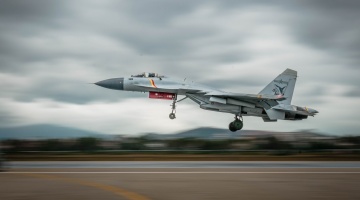
File photo: Josep Borrell, High Representative of the European Union (EU) for Foreign Affairs and Security Policy (source: CCTV)
By Jin Yinan
Josep Borrell, High Representative of the EU for Foreign Affairs and Security Policy, said in a recent document that "The era of Western dominance has indeed definitively ended", adding that improving the relations with the "Global South" countries is one of the strategic issues of the EU.
In his article, Borrell sets out several key tasks on the geopolitical agendas of the EU, including "supporting Ukraine more and quicker", "putting an end to the fighting in Gaza and implementing the two-state solution", "improving the links with the 'Global South'", and "reinforcing the defense capacities and defense industry of the EU". He said, "With two wars on its doorstep, and many other powder kegs all over the world, everyone was finally aware that Europe is in danger", and "If the current global geopolitical tensions continue to evolve in the direction of 'the West against the Rest', Europe's future risks to be bleak."
This suggests that leaders of Western countries and organizations like Borrell have observed a trend that there is growing antagonism between the West and the rest of the world. If the manifestation of this trend was not clear enough in the Russia-Ukraine conflict, it became more noticeable after the new round of Palestinian-Israeli conflict erupted. The fact indicates that the supporters of Israel are developed countries or Western society, while the opponents are developing countries or the "Global South" states. This denotes the prevailing international situation at present.
Over 30 years starting from the early 1990s, the global order imposed by the West has been gradually disintegrating. Therefore, Borrell proposed that if Europe wants to emerge from the bleakness, the confrontation against the "Global South" countries should be avoided. To this end, Borrell proposed that several issues must be resolved in the next three to five years, including ending the humanitarian disasters in Gaza. However, will everything change by only that alone? Not really! There are underlying contradictions that need to be addressed.
One key factor in resolving the issues of Europe lies in the US. However, the protracted Russia-Ukraine conflict has resulted in deep entanglement between Europe and the US. From the current situation, it appears challenging for Europe to come up with workable solutions for self-rescue and swiftly shake off the US.
In this context, Borrell and some politicians attempt to shift the accountability to China and Russia. He wrote in an article on the website of the EU in September last year, "In Latin America, in Africa, in the Middle East and North Africa and, of course, in Asia almost everyone thinks now that there are credible alternatives to the West." He believes that the root cause of this situation is attributed to China and Russia that advocate the development of multipolarity.
However, despite Russian President Vladimir Putin's initial resistance to confrontation against the West, since 1999, NATO has pressed Russia relentlessly with six expansions and completely disregarded its previous promise of never expanding eastward, which eventually led to the outbreak of Russia-Ukraine conflict.
The same is true for China. In 1999, NATO brazenly bombed the Chinese embassy in Yugoslavia, and in 2001, a mid-air collision incident occurred between the US and China. In fact, China has never offended the West but is taken as an enemy by the other side. Therefore, the current tense relationship between China and the US is not the fault of China.
The West has fallen into the current predicament simply by "shooting itself in the foot."
Editor's note: Originally published on military.cnr.cn, this article is translated from Chinese into English and edited by the China Military Online. The information and opinions in this article do not necessarily reflect the views of eng.chinamil.com.cn.









